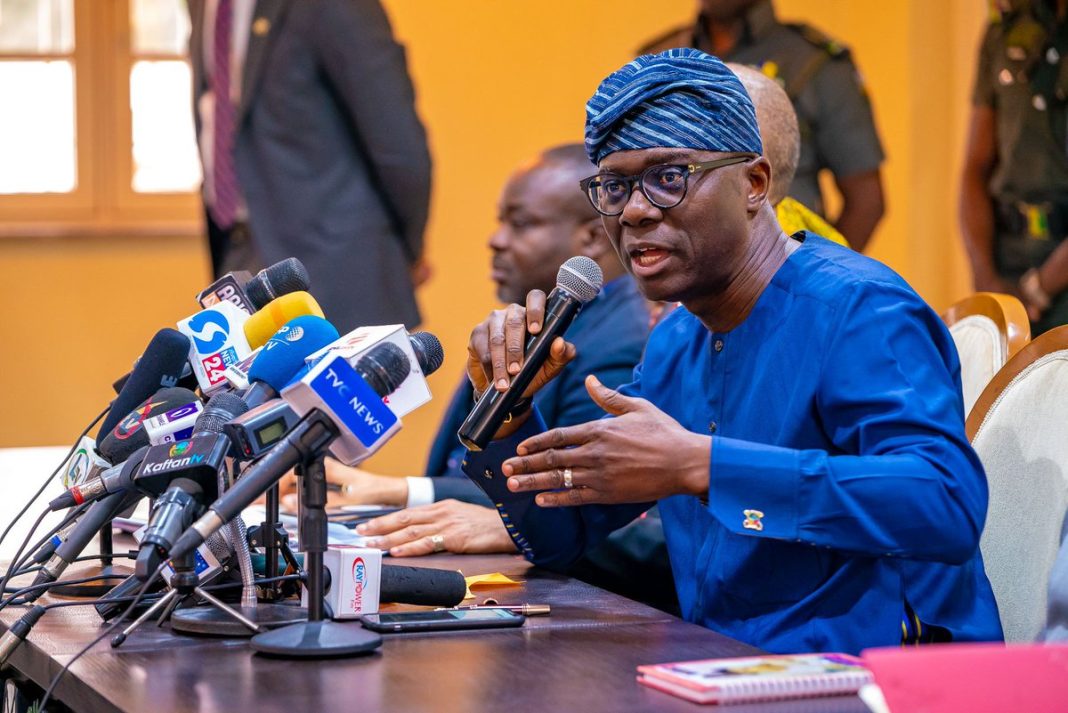LAGOS, Nigeria – Lagos State is set to observe a work-free day on Monday, August 21, 2023, as the Governor, Babajide Sanwo-Olu, dedicates the day to honor the annual Isese Day celebration, a significant event that highlights the rich Yoruba culture and traditions.
The special declaration, communicated through a statement by the Governor’s Chief Press Secretary, Gboyega Akosile, on Saturday, Friday, August 19, 2023, emphasizes the state’s commitment to recognizing and preserving the Yoruba heritage.
Isese Day, traditionally celebrated to pay tribute to the indigenous Yoruba culture, is scheduled for Sunday, August 20.
However, the work-free day on the following Monday allows for a fuller recognition and celebration by the public.
In a recently released circular, Lagos State Head of Service, Hakeem Muri-Okunola highlighted the significance of this gesture by Governor Sanwo-Olu.
He remarked that the declaration is a testament to the Governor’s “commitment to continue to provide the necessary support to traditional institutions in the State with a view to promoting our indigenous culture and tradition while preserving our heritage”.
For all state workers, the official resumption of duties post the Isese Day celebration is slated for Tuesday, August 22, at 8 am.
The dedication of a work-free day underscores the importance of cultural heritage in the state, reiterating the value placed on traditional institutions and their pivotal role in societal growth and unity.
Defiant Drive: Lagos Bus Drivers Defy Government’s 25% Fare Slash Mandate
Commercial bus drivers across Lagos State refuse to reduce transportation charges by 25 percent, leaving daily commuters feeling the pinch.
While the directive aimed to alleviate the transport expenses for Lagosians, many have voiced their dismay over the unyielding fares.
Dele, a regular commuter from Iyana Ipaja to Berger, lamented on Saturday, August 12, 2023, “I have not noticed the 25 per cent reduction in transport prices ordered by government. It only fluctuates between certain prices depending on the availability of passengers on the road and the traffic.”
Hope, another distressed passenger, echoed the sentiment, highlighting that he had seen no fare reduction from bus operators since the government’s announcement.
From the drivers’ perspective, the reduction is seen as impractical.
Many cite the escalating costs in their operations as the primary reason for their inability to comply.
Adewale, a bus driver plying the Berger to Oshodi route, emphasized the financial challenges since the removal of the fuel subsidy.
“The cost of the tickets that they are selling to us is still high,” he shared, adding, “If there is something that needs to be reduced, let us go to the filling stations. It is from there that the matter can be settled.”
Another driver, preferring the moniker “Pastor,” painted a grim picture of the hardships faced by drivers, citing the soaring prices of vehicle maintenance items like tires and engine oil.
He implored the government to understand that, “It is not the bus park union that is maintaining my car. So, they cannot do much to help the situation.”
However, there’s a silver lining for some passengers. Yaro, a driver ferrying passengers between Berger and Ikosi, stands out as an exception.
Not waiting for the government’s directive, Yaro had already slashed his rates due to a drop in passenger numbers, demonstrating some willingness among drivers to adapt to changing circumstances.
The tussle between the government’s intentions, drivers’ practical realities, and commuters’ needs shows a city grappling with economic challenges and raises questions about effective policy implementation.







